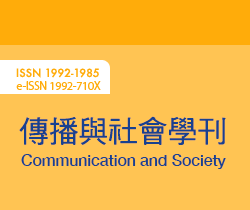 |
| October 2011 |
 |
18 |
|
| 學術對談Dialogue |
| 在宏大理論外思索電影研究 |
| Moving Beyond Grand Theory: Thoughts on Film Studies |
|
|
|
 |
 (2995)
(2995)
|
| 作者 |
對談人:大衛.波威爾(David Bordwell)、葉月瑜 統 稿:葉月瑜 翻 譯:呂琛、彭侃 |
| Author |
Discussants: David BORDWELL, Emilie Yueh-yu YEH Editor: Emilie Yueh-yu YEH Translators: Chen LU, Kan PENG |
| 摘要 |
「電影理論是電影研究的重要組成部分,但對它的思考可以有很多種。我們一則可以認為它是取材自有關社會、政治、文化或人類心志理論的一套信念,然後再將這套信念應用到電影的特定領域,姑且可稱其為『宏大理論』,或可把它叫做一個空降方法。但如果我們將理論建構視為一種活動,一種以電影的普遍性所提出的問題的推演,我們可能會取得更大的進展。這種方式是從我們自身所熟悉的特定事物出發,然後在回答所提出問題的時候引入各種對立的框架。這是一種比較中間層面的方法,沒有失去理論構想,但運用的概念是緊緊圍繞電影的具體問題。」 |
| Abstract |
David Bordwell, the most cited film scholar in English, Chinese, French, Danish and many other languages, has been a regular visitor to the Hong Kong International Film Festival since the early 1990s.
This year we had the opportunity to talk to him about the formation of film studies as a recognized academic discipline in the United States. We discussed the subject’s later diffusion driven by the “grand theory” of psychoanalysis, structural linguistics, neo-Marxism, feminism, queer theory, and cultural studies in the humanities. Instead of paying heed to the top-down model of grand theory, Bordwell suggested we take a different approach and see it as an accumulative, “progressive” intellectual undertaking. This progressive undertaking organizes itself around a problem-based agenda that seeks answers to clarify key issues in film as a communicative and industrial enterprise.
本文引用格式
葉月瑜(編)(2011)。〈在宏大理論外思索電影研究〉。《傳播與社會學刊》,第18期,頁1–15。
Citation of this article:
Yeh, E. Y. Y. (Ed.). (2011). Moving Beyond Grand Theory: Thoughts on Film Studies. Communication & Society, 18, 1–15 .
|
|
|
 |
| No.74 2025 October |
 |
| No.73 2025 July |
 |
| No.72 2025 April |
 |
| No.71 2025 January |
 |
| No.70 2024 October |
|
